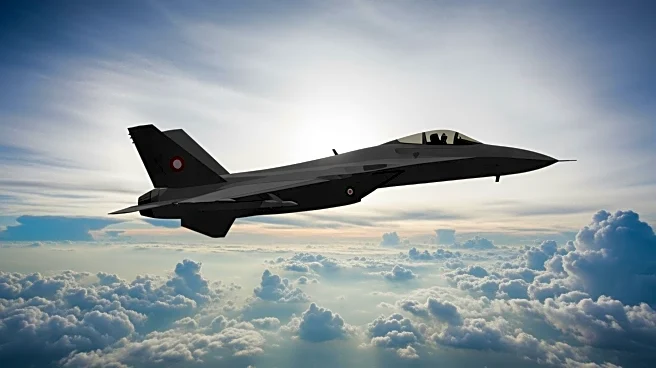What's Happening?
The latest issue of Global Defence Technology highlights the projected growth of the Gulf Cooperation Council (GCC) combat air fleets, which are expected to reach nearly $9.8 billion by 2035. The GCC countries, including Saudi Arabia, the UAE, and Qatar,
are leading markets in this sector. The region's combat air fleets consist of a mix of US and European platforms, with no indigenous manufacturers. The magazine also covers developments in autonomy in Arctic and land domain vehicle design, and insights from NATO's air policing presence in Estonia.
Why It's Important?
The projected growth of the GCC combat air fleets underscores the region's strategic importance in global defense markets. The absence of domestic manufacturers presents opportunities for international defense companies to expand their presence in the GCC. The focus on autonomy and vehicle design reflects a shift in military strategy and technology development, which could influence future defense policies and procurement decisions. The insights from NATO's operations in Estonia provide valuable lessons for enhancing air defense capabilities.
What's Next?
International defense companies are likely to increase their efforts to secure contracts and partnerships within the GCC, leveraging the projected growth in the combat air sector. The development of autonomous technologies and vehicle designs will continue to shape military strategies, potentially leading to new collaborations and innovations. NATO's presence in Estonia may prompt further discussions on air defense strategies and international cooperation.
Beyond the Headlines
The expansion of GCC combat air fleets could have broader geopolitical implications, influencing regional security dynamics and defense alliances. The focus on autonomy and advanced vehicle design may drive ethical and legal debates regarding the use of autonomous systems in warfare.

















